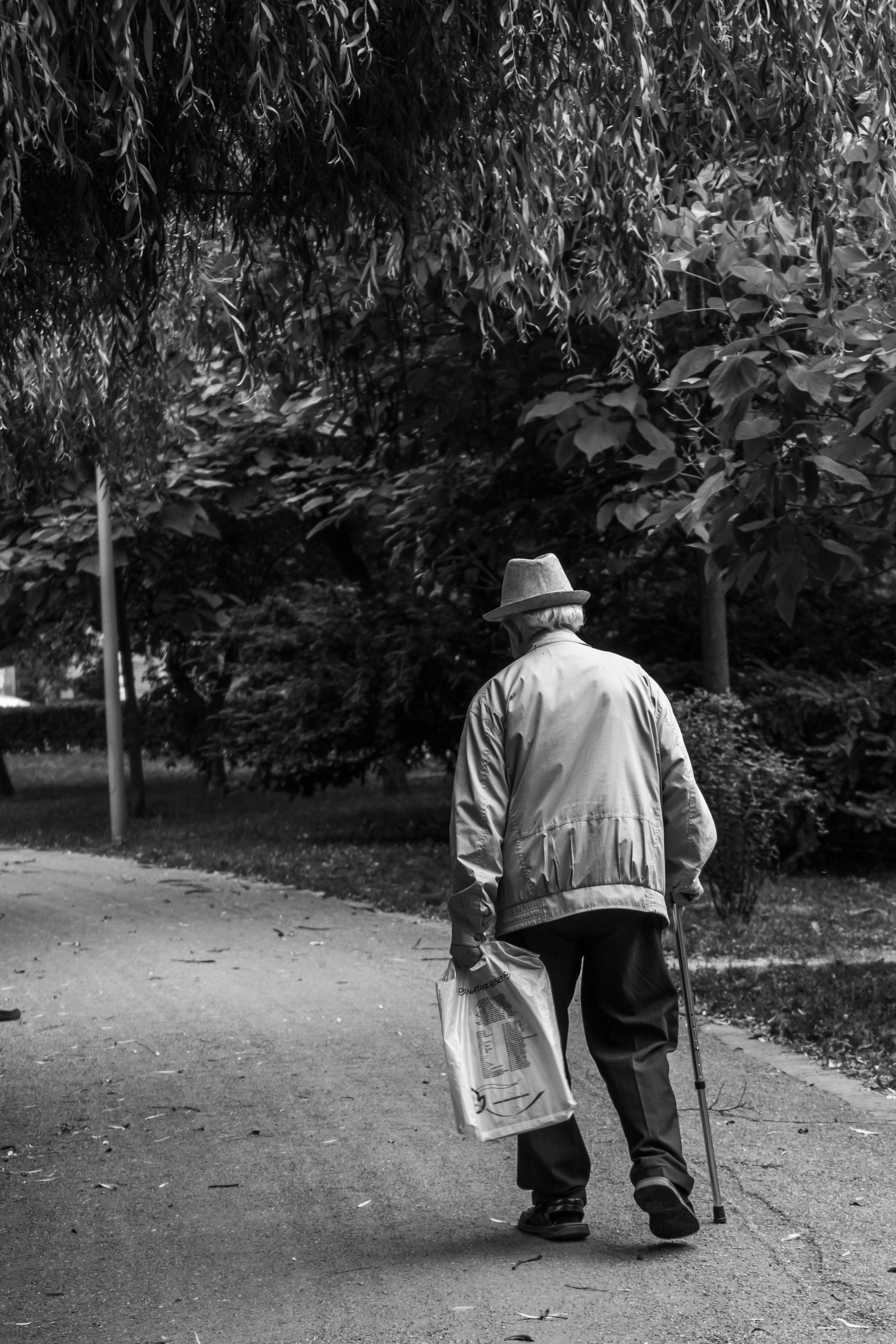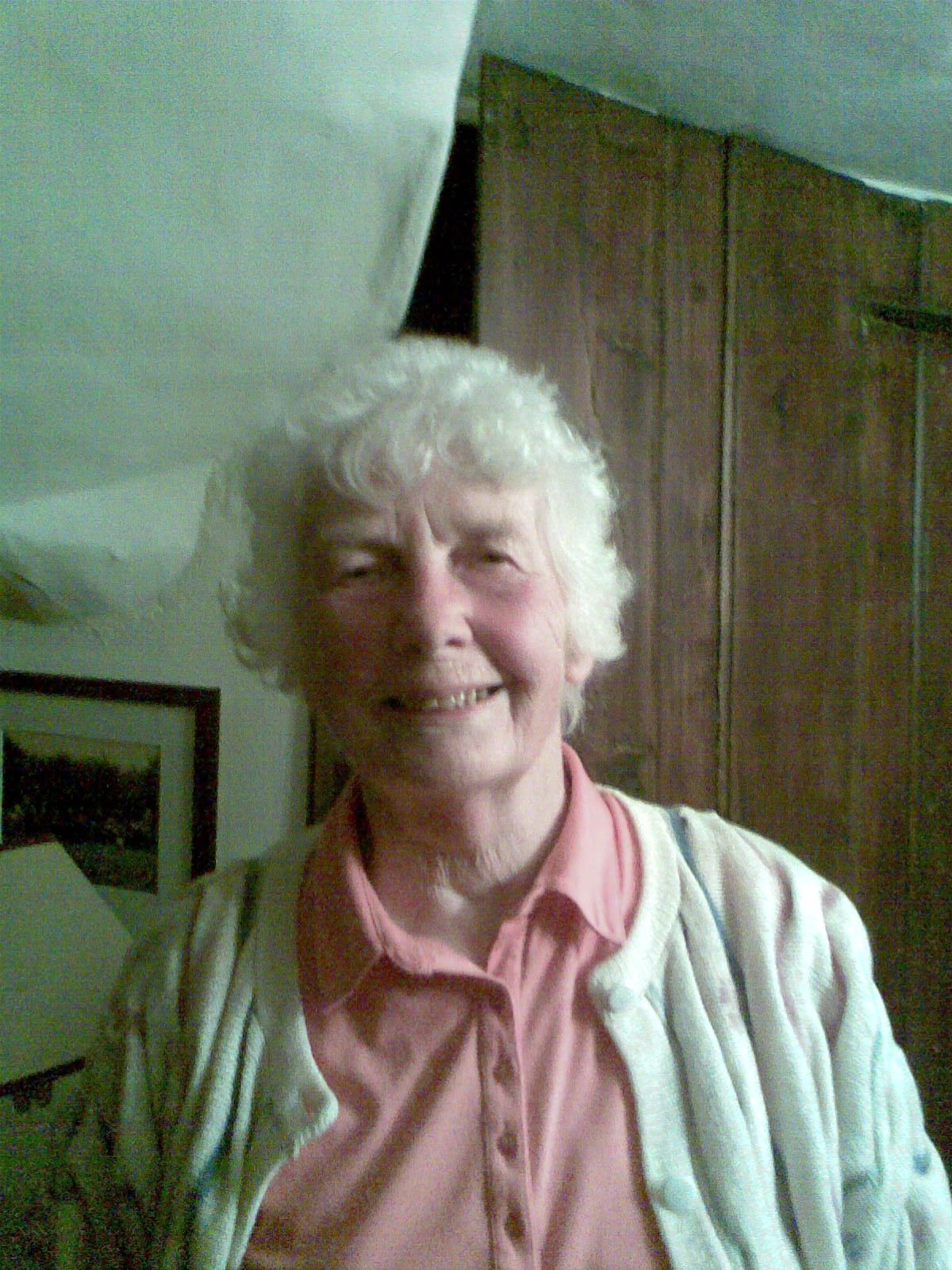In the previous two blogs I’ve written about the difficulties of “transitioning”. Albeit in some very limited ways imposed on me by having a broken leg. Or, more accurately, the challenges facing life with a leg that was broken but is now healing. Any kind of movement was impossible when I had the accident. I was sitting on the ground, bike sprawled next to me, unable to move. Feeling rather frightened and trapped. Fortunately several people stopped, asked what help I needed and intervened appropriately. Calling an ambulance, waiting with me until it came and, finally, taking my bike back home for me. (Thank you very much!) The crisis is now resolved and my task is to carry on hobbling! It’s this process I want to think about now. Less my own hobbling, more the hobbling of some of my patients and how they choose to manage their need to hobble for a while. What internal helpers could they find to help them move from being on the floor to being at home.
The first patient I want to talk about is a young man whom I shall call Mark. (All personal details here are changed.) Mark was doing a foundation degree in photography. His work was very good. We talked about some of his images during the therapy. His difficulty was that he never managed to complete an assignment. There were ideas aplenty and no lack of technical skill. Just something got in the way of producing a portfolio of his work. Consequently he was in danger of failing his foundation year. During our sessions he would often ask me about my tastes in Art or Music. What novels had I read? What hobbies did I have. And so on. These questions usually came up when he was struggling with particularly painful material and wanted to take my attention away from these memories. After a short time I began to interpret these efforts at distraction. I suggested that he was trying to enlist me as a friend with whom he could his share love of Black Sabbath – or a comparable band. In so doing he could sidestep the painful fact that I was his therapist, not his friend. Thus he didn’t have to take seriously his pain or his risk of failing his course. Nor did he have to take our work seriously. If we could tsk about Black Sabbath, then he didn’t need to talk about his background. Thus, with admirable sleight of hand, he could deny the pain that came from his childhood and upbringing.
Mark was one of four children and his parents were both addicted to drugs and alcohol. Thus their main preoccupation was not the children. Except for brief periods when his father was sober and his mother clean, then some attention was given to the children who were mostly looked after by one or other set of grandparents or neighbours. (This level of care was just about enough to give Mark and his siblings some sense of self worth snd value.) Along with all the other difficulties faced by Mark were the mixed messages he got from his parents. On the one had he was exhorted to do well at school. Yet nobody helped him with his homework nor provided a quiet working area. (It is a credit to their resilience that the children did as well academically and socially as they did.)
My comment to Mark was always about taking himself seriously. He was a good photographer but risked putting a possible career in jeopardy by never completing a portfolioio. To present a finished piece of work meant being serious. Coming up with creative images was not going to be enough unless he committed himself to the process of making a portfolio. After a number of weeks Mark came to a session and announced “I’ve worked out my problem, Why I never finish any project. I don’t believe in myself. I always assume that my work will be seen as rubbish. So why bother to present something if it’s only rubbish?” I smiled and agreed with him. “I just need to take myself and my work seriously, don’t I?” I could only agree! The next week he came back and told me he had submitted his final portfolio and had been told, unofficially, by his tutor, that it was a good piece of work which should gain him a Pass. This was his last session. We had achieved our goal. Mark was able to take himself seriously, because I had taken him seriously. It was a pleasing outcome. (I asked him to send me a signed copy of one of his pictures if he ever had a major exhibition. He happily agreed.)
In my next “hobbling” piece I’ll look at some work where the outcome was much less satisfactory.
Don't give up








